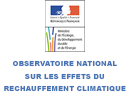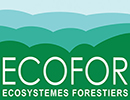Demographic Vertebrate Responses to Climate Change, Relevance of Environmental Indicators, Influence of Demographic Strategies and Consequences for Biodiversity Dynamics
Demographic Vertebrate Responses to Climate Change, Relevance of Environmental Indicators, Influence of Demographic Strategies and Consequences for Biodiversity Dynamics
The CLIM POP working group is made up of several French teams with access to long-term data series and skills in biometrics, studying the ecological effects of climate variations and global change through a range of biological models on higher vertebrates, living in land and marine environments.
The objective is to bring these teams together around a common theme and harmonise and standardise their analysis methods in order to compare the potential effects of the said climate changes on vertebrates with contrasting life history traits and different living environments.
In response to the IFB’s call for research proposals, we wish to address two questions in particular:
- Are certain species or zoological groups more vulnerable than others to climate change, depending on their demographic strategy, and
- What are the most relevant climate indicators? Is it better to use global descriptors (such as NAO or ENSO) or local descriptors to explain the influence of environmental variability on the demographics of species?
In order to address these questions, the authors performed cross-cutting analysis on all of their databases, using the most recent methods available today, during a number of workshops that will bring together the CLIM POP group as a whole, as well as the top specialists in Europe.
| Coordinators |
Henri Weimerskirch, CNRS – Laboratoire d’Aérologie UPS |
| Partnership |
CNRS – Biométrie et Biologie Evolutive |
| Funding |
MEDD
|
| Budget |
80 000€ (including tax)
|




